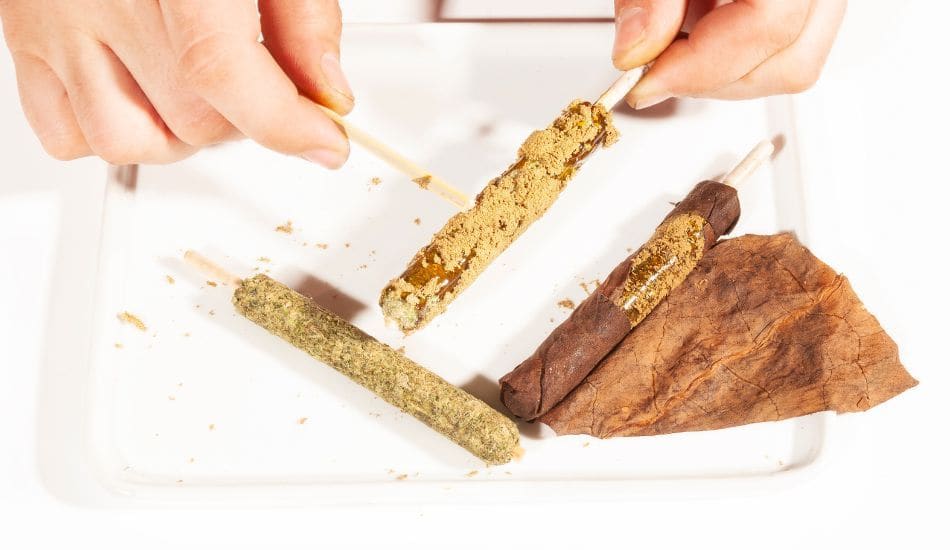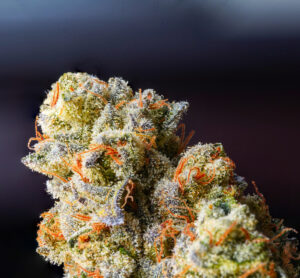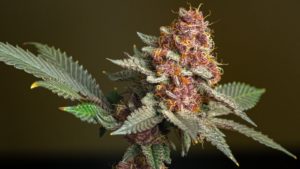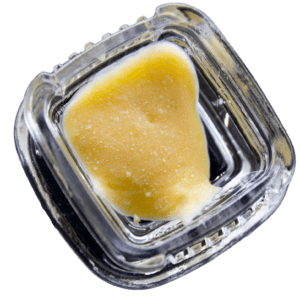
Unlocking Potency and Effects: Decoding the Transformative Journey from THCa to THC in Cannabis
Alan Rachmann

Understanding the THCa to THC Conversion Rate: Unveiling the Dynamics
In the world of cannabis, the conversion from THCa to THC is vital, impacting product potency and effects.
This conversion rate has significant implications for both recreational users seeking a certain experience and medical users aiming for specific therapeutic outcomes.
Delving into the intricacies of THCa to THC conversion sheds light on the science behind cannabis consumption and its effects.
The Science Behind the Conversion from THCa to THC: A Molecular Metamorphosis
THC and THCa both come from the cannabis plant, but each possesses their own unique properties and effects. THCa is the non-intoxicating precursor to THC, and it’s typically found in raw, unheated cannabis. When heat is applied, a process known as decarboxylation occurs, transforming THCa into THC.

This molecular transformation involves the removal of a carboxyl group from the THCa molecule, leading to the creation of THC.
Factors Influencing Conversion Rates
The rate of THCa to THC conversion is influenced by a range of factors. Heat is the primary catalyst for this process, and the temperature at which decarboxylation occurs significantly affects the efficiency of the conversion. High temperatures accelerate the conversion but can also degrade certain compounds, potentially affecting the overall quality of the product.

Time is another crucial factor. Longer exposure to heat at lower temperatures can achieve the same level of conversion as rapid exposure to high temperatures. This aspect is particularly relevant in various cannabis-infused culinary creations, as cooking times and temperatures can impact the final THC content of the dish.
Implications for Recreational and Medical Users
For recreational users, understanding the THCa to THC conversion rate is essential in predicting the potency of their cannabis products. Accurate dosing and achieving the desired psychoactive effects depend on having a reasonably accurate estimate of the final THC content.

Dispensaries and product manufacturers often provide information about THC content, allowing consumers to make informed decisions about their consumption.
Medical users, on the other hand, may have distinct objectives. Some medical conditions respond better to THCa, as it lacks the intoxicating effects of THC. For these users, understanding the conversion rate becomes a matter of tailoring their treatment regimen to achieve the desired outcomes.

Navigating Legalities and Regulations
The conversion of THCa to THC plays a role not only in the potency and effects but also in the legal status of cannabis products. Many jurisdictions have specific limits on THC content for both medical and recreational products.
Understanding the conversion rate helps manufacturers and regulators ensure compliance with these regulations and provide safe, accurately labeled products to consumers.

The Road Ahead: Advancements and Research
As the cannabis industry continues to evolve and scientific understanding deepens, research into THCa to THC conversion rates is likely to expand. This could lead to more precise control over the cannabinoid profiles of cannabis products, allowing manufacturers to tailor products to specific consumer preferences and medical needs.
In conclusion, the THCa to THC conversion rate is a fundamental process that underpins the effects and legal considerations of cannabis products. From recreational users seeking predictable experiences to medical patients aiming for therapeutic relief, understanding this conversion rate empowers consumers and professionals alike.
As scientific knowledge advances, the potential to fine-tune cannabis products for various applications becomes increasingly promising.
Alan Rachmann
Leave a Comment
About El Jay's
We take pride in offering organically-grown THCa flower that is lab-tested to ensure the highest quality and purity. Our dedication to using sustainable and natural growing practices ensures that our flower is free of harmful pesticides and chemicals. Click here to view all our product offerings.
Recent Posts
Shop Now
-
- Sale!
Wholesale THCa Hemp Live Resin Badder – Choose Your Strains
- $950.00 – $3,250.00Price range: $950.00 through $3,250.00
- Rated 5.00 out of 5
- Select options This product has multiple variants. The options may be chosen on the product page
-
El Jay’s THCa Hemp Diamonds
- $25.99 – $67.99Price range: $25.99 through $67.99
- Rated 4.80 out of 5
- Select options This product has multiple variants. The options may be chosen on the product page
Contact Us
Sign up for our Newsletter
By submitting this form, you agree to receive emails from us.






This Post Has One Comment
love it Alan. This is some mind-blowing stuff for real you guys are the best and know your stuff like nobody’s business. It is incredible how much detail and thought you put into your blog posts.